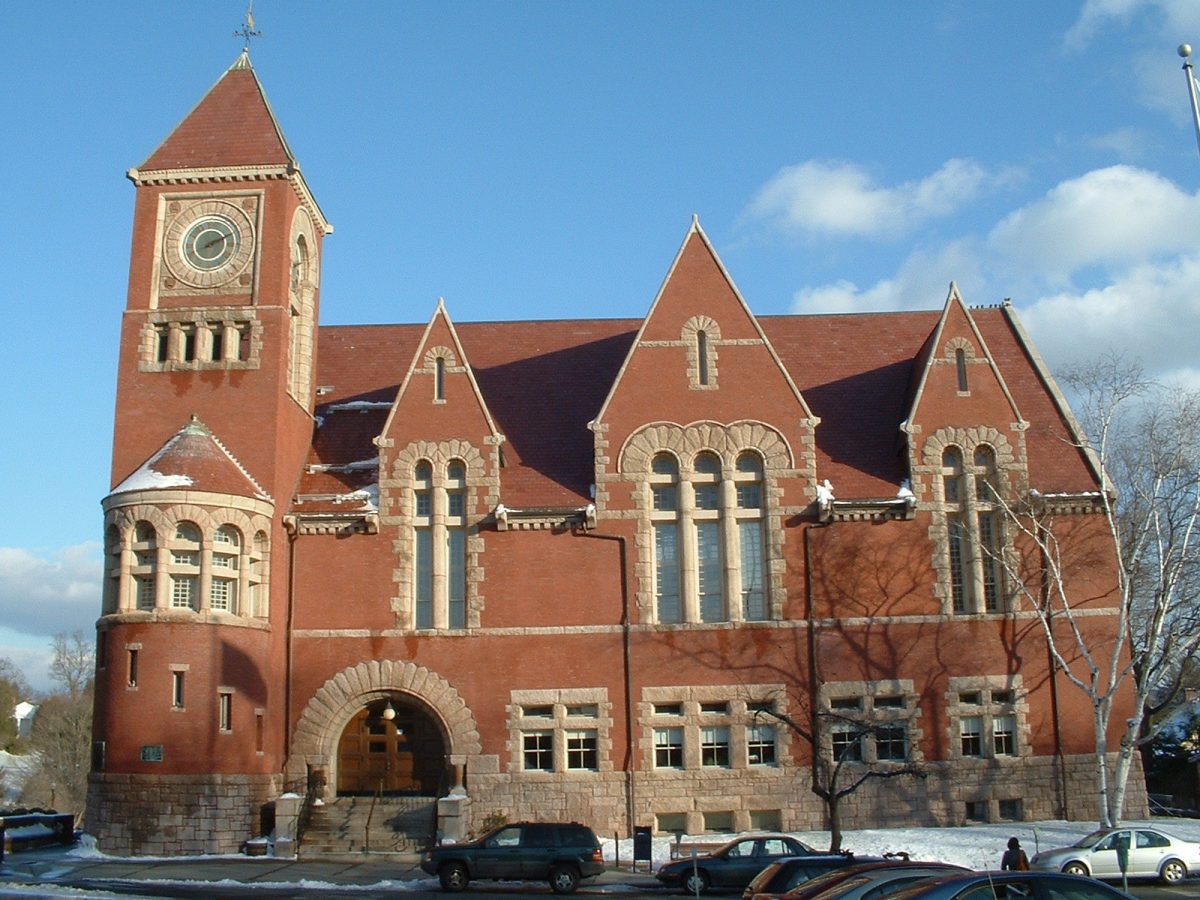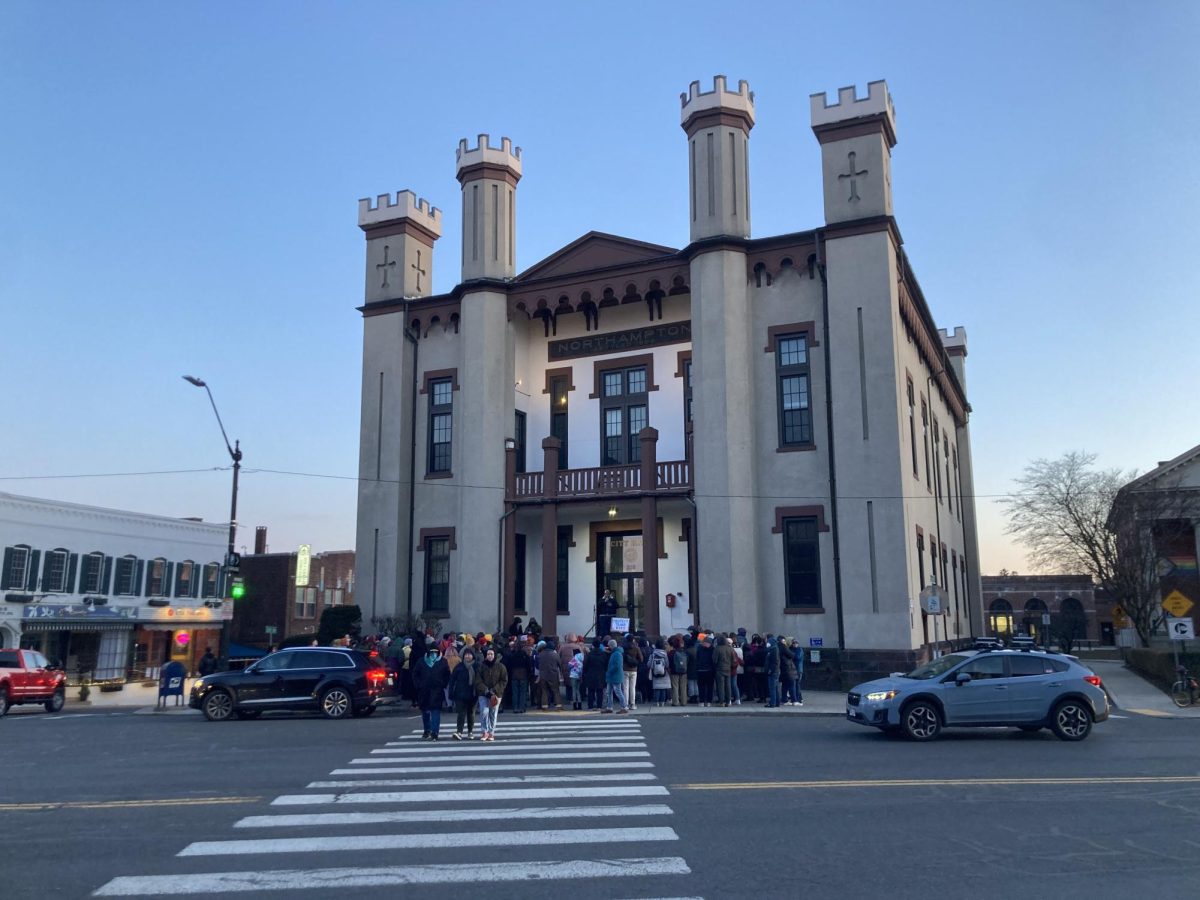What your vote does, according to “Massachusetts Information for Voters 2010 Ballot Questions” published by Secretary of the Commonwealth William Francis Galvin:
A YES VOTE would remove the state sales tax on alcoholic beverages and alcohol where their sale or importation into the state is subject to an excise tax under state law.
A NO VOTE would make no change in the state sales tax on alcoholic beverages and alcohol.
—
Nov. 2, Election Day is fast approaching. Aside from the highly-contested congressional races throughout the state, three questions will appear on the ballot for the Bay State electorate’s vote. The first initiative is a proposed law to repeal the 6.25 percent sales tax on alcoholic beverages and alcohol. The tax went into effect on August 1, 2009.
Democrat Ellen Story, State Representative from Amherst, opposes the repeal, stating that she believes alcohol, like other goods, should be taxed.
“For years, for some reason, the alcohol industry got a tax break, I don’t know why or when,” she said. “During the financial crisis, the Governor and legislature were looking to increase revenue, and one way they sought to do that was to get rid of the exemption on alcohol tax.”
Story continued to state that the legislature didn’t actually raise the sales tax on liquor, they just abolished the exemption.
Representative Story cited figures presented by groups opposing the question which hold that repealing the sales tax would cut about $110 million dollars of tax revenue out of Massachusetts’ $28 billion budget. Story fears that the loss of revenue, with the state already facing a $2.8 billion budget gap, will cause the state to cut funding from human services, fire, police and public higher education, because those programs are an easy target.
Nathan Day, manager of R&P Liquors and Fine Wines located at 505 West Street in Amherst is strongly in favor of the referendum.
“Alcohol is already a heavily taxed item,” Day said in a telephone interview. “Tacking on a sales tax to alcohol is in effect doubling the tax.”
Day, along with all other liquor store owners, experienced the sales tax jump from 0 percent to 6.25 percent overnight added on top of the existing excise taxes.
Excises taxes are levies on goods purchased for sale. Other examples include excise taxes on gas and tobacco products.
When Day purchases liquor from his wholesaler, he is essentially paying extra because of the hidden excise taxes added to the price of the product. When R&P Liquors retails the goods, it has to make up for the excise taxes, plus the additional sales tax. The customer is consequently charged more.
Presently, Massachusetts’ excise taxes on alcohol lie near the middle of national rates. For spirits, the Bay State’s rate of $4.05 per gallon makes it the 28th-highest excise tax. The state’s wine excise tax of $.55 per gallon places it at 26 nationally, and it imposes an excise tax of just $.11 on beer, the 41st highest rate, according to the Tax Foundation.
Republican Donald F. Humason Jr., a State Representative from Westfield, is also in favor of the repeal.
“This has had a real impact on the northern part of our state,” he said, echoing an argument that the tax has driven business across Massachusetts’ borders to New Hampshire, which does not have a sales tax. “The liquor tax completely killed the liquor business there,” Humason continued, “consumers can go ten miles north to New Hampshire to buy alcohol, and while they’re there, they end up buying other things because it’s a tax free state.”
Nathan Lamb, a junior political science major at the University of Massachusetts, also a supporter of the repeal, believed the imposition of the sales tax on the liquor industry is hurting the state’s economy in other areas.
“In a time where, as a state, we are struggling to attract businesses and create jobs, we do not need another tax to stifle the economic growth in Massachusetts,” he said.
Humason estimated that Massachusetts taxpayers spend about six months out of the year working to pay all the taxes Massachusetts citizens are required to pay.
“People ask why we continue losing population year after year,” Humason said rhetorically. “It’s because kids graduating college can’t afford to pay the taxes here, so they move out West or down South.”
Further, some debate the merits of the “sin tax argument,” that vices, for instance tobacco, lottery tickets, alcohol or other items of indulgence, should be taxed more heavily than other goods.
Democrat Harriett Stanley, a State Representative from West Newbury, was quoted in the Newburyport Daily News as backing the sin tax logic, stating that the taxes should compensate for what she sees as the harm the items create.
“It’s appropriate to use money generated by sin taxes. Almost all families have had a brush with alcoholism or addiction and the toll it can take.”
Health associations across the Commonwealth are pushing for the tax to stay in palce. The Massachusetts Hospital Association, the Massachusetts Association of Health Plans and the Massachusetts Association of Community Health Centers agree that repealing the 6.25 percent tax on alcohol would result in funding being slashed for substance abuse prevention programs.
Representative Humason countered this opinion stating that he believes while funds from the alcohol revenues should go to alcohol-related programs, he feels they merely end up padding the state’s coffers.
“The revenues from sin taxes are supposed to fund programs like Alcoholics Anonymous, that’s how the leadership sold it to the members of the legislature.”
The Committee Against the Repeal of the Alcohol Tax states on its website that taxing alcohol may help curtail teen drinking.
“Numerous studies have shown that the alcohol tax is among the most effective ways to deter underage drinking,” their argument reads.
Although Story opposes the repeal, she said she does not feel the tax serves as much of a deterrent from drinking.
“The sales tax does not prevent someone from buying a six pack of beer or a bottle of wine at the liquor store,” she quipped.
Lamb strongly disagreed that sin taxes benefit behavioral health programs.
“Does anybody recall an outcry for this tax because people needed help from the state to combat their behavioral health problems? I certainly do not.”
According to an Oct. 14 poll from Suffolk University and Boston’s NBC 7 News, 44 percent of respondents said they support cutting the tax, while 49 percent were opposed to the repeal and the remaining six percent said they were still undecided.
UMass political science professor Michael Hannahan presumed most voters who would like to see fewer taxes next year will vote yes on Question 3, a referendum rolling back state sales tax to 3 percent. In so doing, Hannahan said he believes Bay State voters may be likely to feel somewhat guilty, causing them to vote not to repeal the sales tax on alcohol.
“Everywhere we go, we are taxed,” cried Day. “When are we going to stand up and say enough is enough?”
Day said he plans to start a campaign in the coming days advocating for voters to vote yes on Question One.
The complexity of this tax initiative is cause for contentious debate among colleagues, business owners, scholars and citizens around the Commonwealth. Nov. 2 is the electorate’s chance to engage in a direct democracy and affirm a position on Question One.
Katie Byrne can be reached at [email protected].






